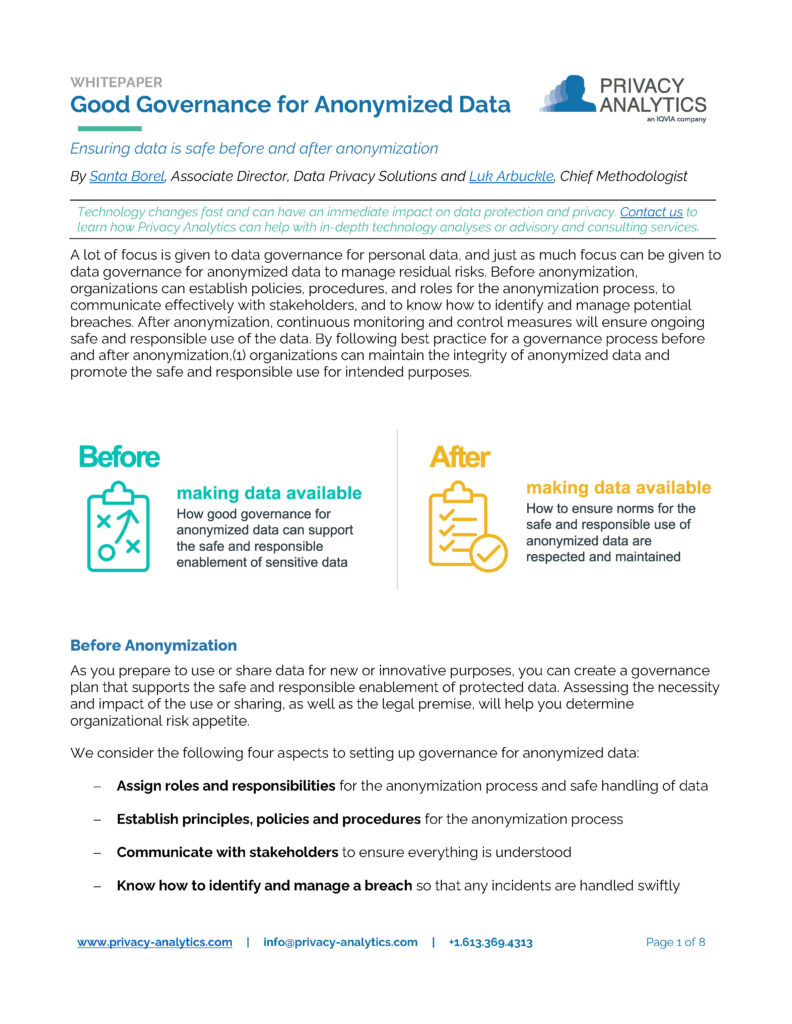A lot of focus is given to data governance for personal data, and just as much focus can be given to data governance for anonymized data to manage residual risks. Before anonymization, organizations can establish policies, procedures, and roles for the anonymization process, to communicate effectively with stakeholders, and to know how to identify and manage potential breaches. After anonymization, continuous monitoring and control measures will ensure ongoing safe and responsible use of the data.
This paper provides an overview best practice for a governance process before and after anonymization, so that organizations can maintain the integrity of anonymized data and promote the safe and responsible use for intended purposes. We believe that anonymized data can be a valuable resource for advancing research and achieving socially and organizationally beneficial outcomes. With these best practices in place, organizations can leverage anonymized data to drive innovation and outcomes, while also managing residual risks.
